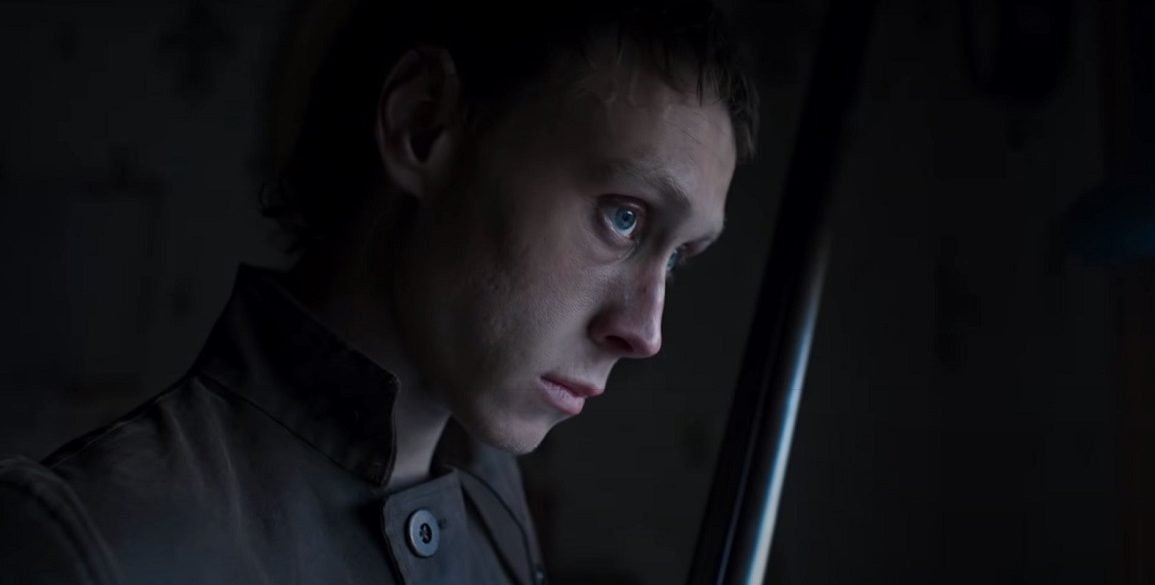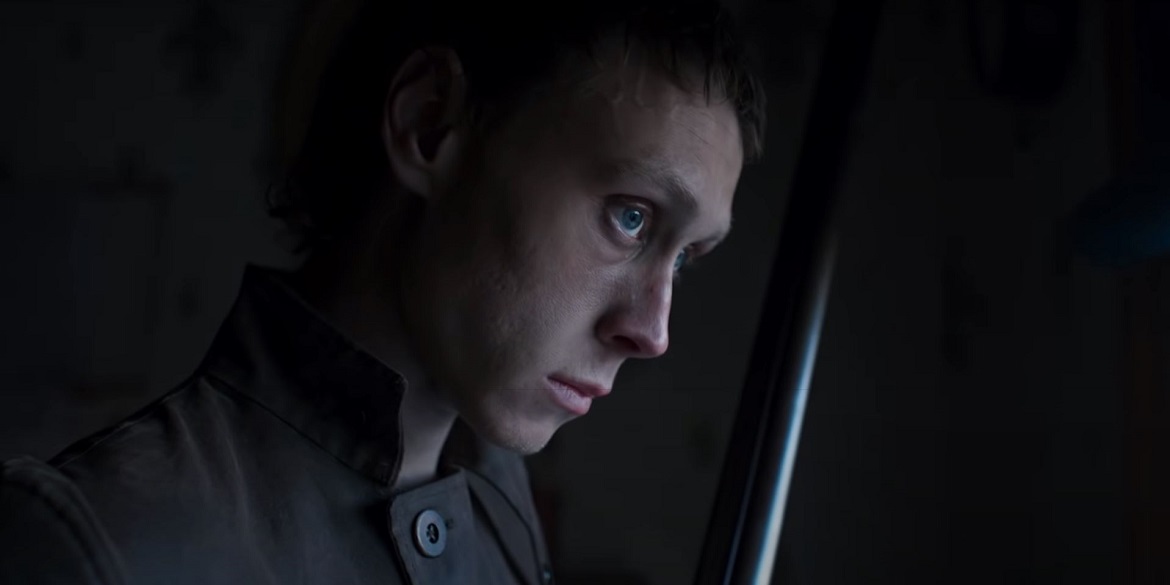History is riddled with outlaws. Individuals who seek to blaze a new trail or lash out at perceived order, only to find tales told about them, in their passing. Those stories, shared often enough, become legend or at least folk takes, altered as the world moves along. Each country has one, but some stand out from the pack, more than others. Names likes Robin Hood, Pancho Villa, Billy The Kid and Dick Turpin have gone on to have countless stories or films made about them.
For Australia, there’s Ned Kelly. The Bushranger, who killed policemen, was seen as a folk hero, due to his defiance against the English, in power. Over the years, his story has wound up a curiosity, when translated onto the silver screen. Portrayed by the likes of Mick Jagger, Heath Ledger and to a slightly left-of-center and abstract degree, Yahoo Serious. All that matters not, now that Justin Kurzel’s True History of the Kelly Gang exists. An adaptation of Peter Carey’s novel, by Shaun Grant, it’s a luminous film, the kind sure to stamp itself upon your brain. A maddening and exhilarating blood soaked punk western, that deconstructs the base concept of an outlaw. A work that may just go down as one of 2020’s most compelling visions. One also where, as the film boldly states upon opening, “nothing you’re about to see is true”.
Growing up in 1867’s Australia, is difficult. Mostly if you’re part of an Irish descendant family, living on the outskirts of Victoria, under colonial rule. Young Ned doesn’t have much in the way of fatherly figures. His drunken father, John (Ben Corbett) doesn’t do much, before being hauled off to jail. The local Sergeant (Charlie Hunnam) trades sexual favors with the Kelly matriarch Ellen (Essie Davis), in order partially turn a blind eye on some activities. The closest he comes to a mentor, is when he’s forcibly taken under the wing of Harry Power (Russell Crowe). A bushranger that’s part Grizzly Adams, part militia man and all kinds of rabble-rouser. In the end though, he’s just another person telling Ned who he’s supposed to be. Setting him down a path, that over several decades, leads to eruptions of violence and a collision course with destiny.
The interesting thing about a film like True History of the Kelly Gang, is that the more you try to firmly grasp what it’s all about, the more things slip through the cracks. Any time the film seems to feel weirdly about its coding and ideology. Fleeting images and moments give credence to more bunking under the surface without ever exploring it. That not to say it *should* have to, but the more it continually piles up ideas, without moving them forward, it starts to feel like leftover bits.
At the same time, all the pushing and pulling matches Ned’s struggle for identity. Being told how he’s supposed to act, what’s expect d of him, who his ancestors are, what triggers to pull. It does nothing but make him more lost and madder. Only finally reaching an apex, when he feels there’s no choice left, but to snap and in his place is the demon incarnation of all the horrors he’s seen. It’s here Kurzel really puts his foot down, envisioning the adult Ned (George MacKay) as a punk, raging against the establishment. This isn’t some light approximation either, as he introduces MacKay I to the fray, in a crazed body contortion and flailing that immediately calls to mind Iggy Pop.
From the very beginning, something feels off about True History of the Kelly Gang. Maybe otherworldly is the right word. It has a period setting, yet feels displaced in time. The dialogue rings true, but has an extra crackle of 80’s anarchy brimming around the edges. Almost creating a sense of weirdness, to it all. Agitating things bit, is a buzz in the air. Like a fly hovering just outside the reach of your ear. Jed Kurzel’s (yes, brother of the director) score sets things perfectly. Unfolding like an ever tightening noose around poor Ned’s neck. Forever on the verge of snapping.
This is very much a mood piece. Built up of stirring imagery, strong performances and a story that’s more metaphorical overall, than it is grounded fully in reality. Things swing wildly from scene to scene, almost in defiance of expected pacing. It feels deliberate, backed by Ari Wegner’s stunning cinematography and Alice Babidge’s immaculate costumes. Each is a tight piece in a work that feels akin to classical arthouse, through the lens of Richard Franklin and Alex Cox. Doing so gives birth to an amalgam that’s essentially The Assassination of Jesse James by the Coward Robert Ford and The Proposition, by way of Lords of Chaos. While that may sound like a mess, in the hands of Kurzel, it’s immensely captivating.
One big element that helps raise everything to another level, is the acting. Every passage contains some supporting actor, putting on a show. Hunnam seems more energetic here, than he has in any Hollywood production. Crowe dazzles in his brief turn. Then there’s Nicolas Hoult, a another sergeant Ned must contend with. Hoult breaks away from the normal chains he’s shackled in, delivering a cool and calculatingly evil performance. What sells it all though, is the absolute powerhouses of Davis and MacKay. Coming off the success of 1917, this is MacKay’s moment to shine. Cementing himself as an actor you’ll be tired of hearing about, within the next 5 years. This is the kind of work that puts you on everyone’s radar. In the way Bronson did for Tom Hardy or Chopper did for Eric Bana.
Regardless of how great MacKay is, Davis almost single handedly outshines him. Her Ellen is the main linchpin here. Doing whatever she can to protect her family, even if it means turning her back on family. There’s a sadness in Ellen that’s palpable, even as she howls and yells at those around her. Often putting up a stonier facade than may be needed. She’s more reckless than her children. Yet has bestowed a defiance in them, to come to her side, if she gets too bold in her steps. It’s hard to blame her, when constantly witnessing the lot life has cast her with. This may not be the kind of work that normally makes it to award voter’s eyes, but it has every right to.
When you get down to it, True History of the Kelly Gang is a film meant to shock and wow most who view it. Rather than build up or embrace a legend, it instead demystifies the notion. Yet it does so on its own terms,by presenting an uncompromising vision. After all, Kurzel is the man responsible for Assassin’s Creed. This film, like his MacBeth before it, shows what filmmakers can accomplish when left to their own devices. Though there are a couple small instances keeping this from being perfect, there’s no arguing that it’s something unique and worth revisiting. Early in the proceedings Power tells young Ned to keep a diary, charting his life, “If I leave it for the English to tell, they’ll only f@#% it up and steal the proceeds.” As pointed as that may be, it’s advice Kurzel and the film itself, takes to heart.




